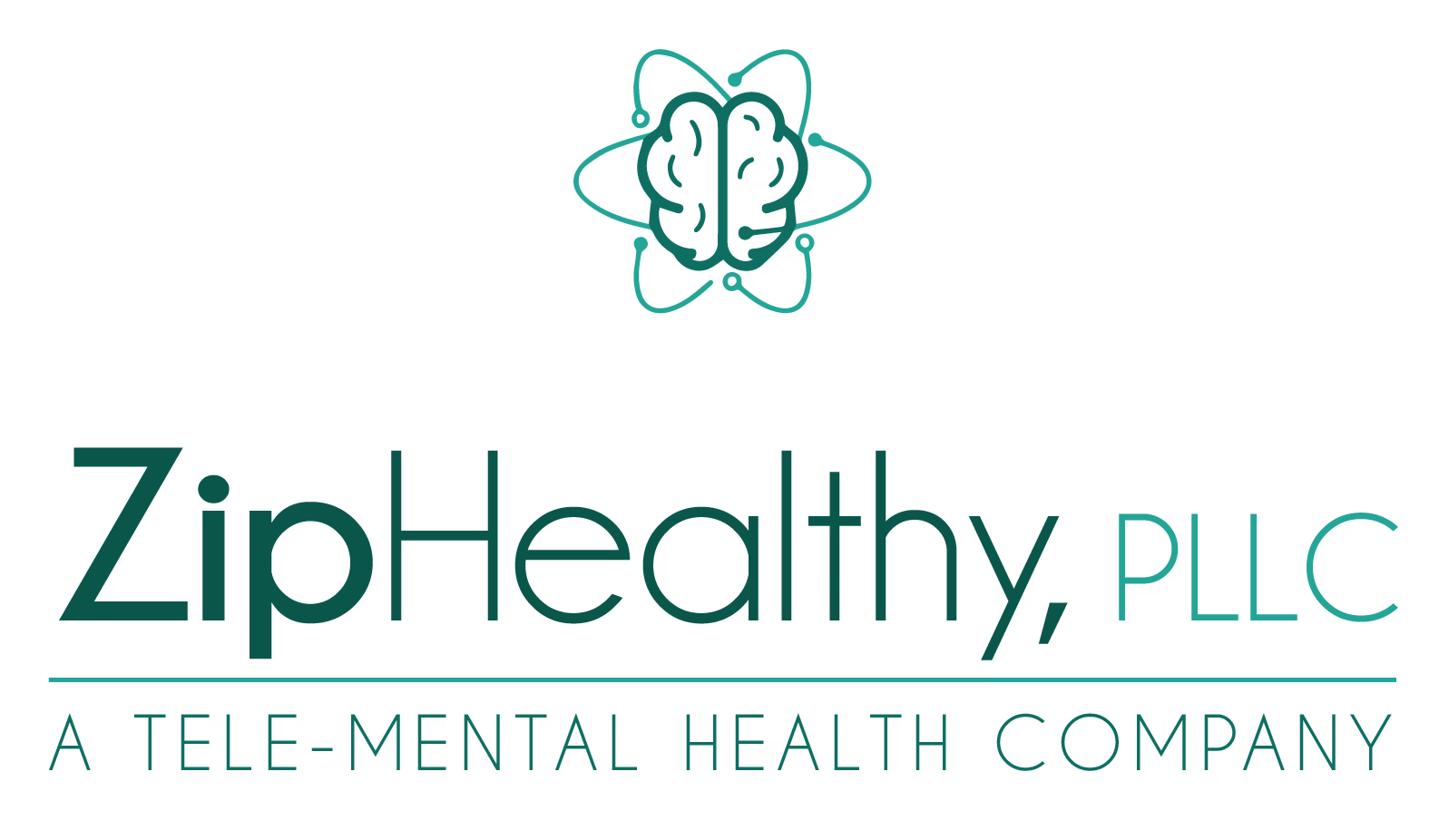Do you struggle with intense emotions that feel overwhelming and lead to impulsive actions? Or perhaps you experience difficulty maintaining stable relationships? Dialectical Behavior Therapy (DBT) provides powerful, research-validated tools to help Northwest Arkansas residents transform these challenges.
At ZipHealthy, we bring comprehensive DBT treatment to Bentonville, Rogers, and surrounding NWA communities. This guide explains what DBT is, how it works, and why it may be the solution you've been seeking for emotional regulation and interpersonal effectiveness.
What is Dialectical Behavior Therapy (DBT)?
Dialectical Behavior Therapy is a comprehensive, evidence-based treatment approach developed by Dr. Marsha Linehan in the late 1980s. Originally created to treat borderline personality disorder, DBT has proven effective for numerous conditions involving emotional dysregulation, including:
- Borderline personality disorder
- Self-harm behaviors
- Suicidal thoughts and behaviors
- Substance use disorders
- Eating disorders
- Post-traumatic stress disorder (PTSD)
- Depression with emotional instability
The term "dialectical" refers to the integration of two opposing concepts: acceptance and change. DBT teaches clients to accept themselves and their current situation while simultaneously working toward positive change—a balance many find transformative.
DBT Effectiveness: Research Outcomes
Multiple randomized controlled trials have demonstrated DBT's effectiveness. Research shows that clients who complete a full course of DBT experience:
- Approximately 77% reduction in self-harm behaviors
- 55% fewer crisis-related emergency room visits
- Up to 70% improvement in emotional regulation skills
- Significant decreases in anxiety, depression, and anger
The Four Core Modules of DBT Skills
What makes DBT unique is its structured approach to teaching specific life skills. These skills are organized into four modules, each addressing different aspects of psychological and emotional functioning:
1. Mindfulness Skills
The foundation of DBT, mindfulness skills help you become more aware of your thoughts, emotions, and surroundings in the present moment without judgment (similar to approaches used in Acceptance and Commitment Therapy). Key practices include:
- What skills: Observing, describing, and participating fully in experiences
- How skills: Taking a non-judgmental stance, focusing on one thing at a time, and being effective
By practicing mindfulness, Northwest Arkansas clients learn to experience emotions without being overwhelmed by them, creating space for more thoughtful responses to challenging situations.
2. Distress Tolerance Skills
These skills help you navigate crisis situations and intense emotional states without making things worse. For those with anxiety disorders, these techniques can be particularly helpful (see our anxiety management guide). Methods include:
- TIPP skills: Temperature change, Intense exercise, Paced breathing, and Progressive muscle relaxation to rapidly reduce emotional arousal
- Distraction techniques: Redirecting attention away from distressing thoughts
- Self-soothing: Using the five senses to comfort yourself
- Radical acceptance: Acknowledging reality without fighting against unchangeable circumstances
3. Emotion Regulation Skills
These skills help you understand, identify, and manage your emotions more effectively. Key components include:
- Identifying and labeling emotions: Recognizing what you're feeling
- Interpersonal Effectiveness Skills: Learning to communicate needs, set boundaries, and navigate conflicts effectively - important skills also addressed in our couples therapy approach
- Reducing vulnerability: Managing factors like sleep, nutrition, and exercise that affect emotional resilience
- Increasing positive emotional events: Building pleasant experiences into daily life
- Opposite action: Acting contrary to emotional urges when they aren't helping
4. Interpersonal Effectiveness Skills
These skills help you communicate your needs, set boundaries, and maintain self-respect while preserving relationships. Key techniques include:
- DEAR MAN: A framework for making requests assertively
- GIVE: Strategies for maintaining relationships during conflicts
- FAST: Methods for maintaining self-respect in interpersonal situations
How DBT is Delivered in Northwest Arkansas
At ZipHealthy, we offer comprehensive DBT treatment following the research-validated model. A full DBT program typically includes:
Weekly Individual Therapy
One-on-one sessions with a DBT-trained therapist help you apply skills to your specific challenges, address barriers to change, and track progress. If you're new to therapy, see our guide on what to expect in your first therapy session. Individual therapy is tailored to your unique needs and priorities.
Skills Training Groups
Our Bentonville and Rogers locations offer weekly DBT skills groups where you'll learn specific techniques alongside others facing similar challenges. These 2-hour sessions include structured education, practice exercises, and homework assignments to reinforce skills in daily life. We also offer services in Springdale and Bella Vista.
Phone Coaching (As Needed)
Brief between-session phone support helps you apply skills during real-life challenging situations, preventing crisis escalation and reinforcing new behaviors. This complements both in-person and online therapy approaches.
Therapist Consultation Team
Behind the scenes, our DBT therapists meet regularly as a team to ensure high-quality care, maintain fidelity to the treatment model, and provide mutual support—ultimately benefiting our Northwest Arkansas clients.
"The most basic dialectic is that life is worth living even when there is pain; validating the person's distress while helping them build a life worth living is at the heart of effective DBT."
— Dr. Marsha Linehan, DBT Developer
Who Benefits from DBT in Northwest Arkansas?
While originally developed for borderline personality disorder, DBT has proven effective for many Northwest Arkansas residents experiencing:
- Emotion regulation difficulties: Frequent mood swings, intense reactions, or feeling emotionally "out of control" - learn more in our guide to healthy emotional regulation
- Impulsive behaviors: Acting without thinking during emotional states - see our ADHD treatment approaches for related strategies
- Relationship challenges: Patterns of unstable or intense relationships
- Identity concerns: Unclear sense of self or values
- Self-harming behaviors: Including cutting, substance misuse, or other damaging coping mechanisms - explore our healthy coping mechanisms article
- Suicidal thoughts: Recurring thoughts about death or suicide
DBT is appropriate for adults, adolescents, and even adapted formats for children. At ZipHealthy, we offer DBT for various age groups, with specialized adolescent programs available at our Bentonville location and Fayetteville offices.
DBT Success Stories from Northwest Arkansas
Client Experiences
Here are examples of how DBT has helped our NWA clients (details changed to protect confidentiality):
Emily, Rogers
"Before DBT, I'd spiral into crisis at least weekly, often ending up in the ER. Learning distress tolerance skills has completely changed that. I haven't had a major crisis in over six months, and I now have tools to handle intense emotions when they arise."
Marcus, Bentonville
"The interpersonal effectiveness skills have transformed my marriage. Instead of constant fighting or shutting down, I can express my needs clearly and listen to my partner—even during difficult conversations."
Jessica, Centerton
"As someone with trauma and intense emotions, I tried multiple therapies before finding DBT. The combination of acceptance and change strategies finally gave me a way forward. For the first time in my adult life, I feel like I have control over my emotions rather than them controlling me."
DBT Skills Assessment
Take this assessment to explore how DBT skills might benefit you. This screener evaluates areas where DBT's four core skill modules could be helpful.
Confidential & Secure: Your responses are not stored and remain completely private.
This assessment is for informational purposes only and does not replace professional evaluation.
What to Expect from DBT Treatment
At ZipHealthy's Northwest Arkansas locations, a typical course of comprehensive DBT lasts 6-12 months, though this varies based on individual needs and goals. During this time, you'll:
- Attend weekly individual therapy sessions (50-60 minutes)
- Participate in weekly skills group sessions (2 hours)
- Complete between-session practice assignments
- Track target behaviors and skills use with diary cards
- Have access to phone coaching for skills application in crisis situations
Most clients begin noticing improvements within the first 8-12 weeks, with more substantial changes occurring as skills become integrated into daily life. Research shows that 85% of DBT clients maintain their improvements at two-year follow-up.
Is DBT Right for You?
DBT requires commitment to regular attendance and active participation, including completing homework and tracking skills use. While this level of engagement can be challenging, it's also what makes DBT so effective.
During your initial consultation at our Bentonville or Rogers office, we'll help determine if DBT is the most appropriate treatment for your specific needs or if another evidence-based approach might be more suitable.
DBT Services at ZipHealthy
Our Northwest Arkansas DBT program offers:
- Comprehensive DBT: The full treatment model including individual therapy, skills groups, and phone coaching
- DBT Skills Groups Only: For clients who already have an individual therapist but want to learn DBT skills
- DBT-Informed Individual Therapy: Incorporates DBT principles and skills into individual sessions
- Adolescent DBT: Modified approach for teens and their families
All DBT services at ZipHealthy are provided by therapists with specialized training in this modality, ensuring you receive treatment that adheres to the evidence-based model.
Getting Started with DBT in Northwest Arkansas
If you're interested in DBT at ZipHealthy's Bentonville or Rogers locations, here's how to begin:
- Initial Consultation: Schedule an assessment to determine if DBT is appropriate for your needs
- Pre-Treatment Orientation: Learn about DBT and what to expect from treatment
- Commitment Agreement: Review and commit to program expectations
- Begin Treatment: Start individual therapy and join the next available skills group
New DBT skills groups begin quarterly at our Northwest Arkansas locations, with individual therapy available throughout the year.
Ready to transform how you manage emotions and relationships? Contact ZipHealthy today at 1.479.239.9769 or complete our online form to schedule a DBT consultation.
References
- Linehan, M. M. (2014). DBT Skills Training Manual (2nd ed.). Guilford Press.
- Linehan, M. M., Korslund, K. E., Harned, M. S., et al. (2015). Dialectical behavior therapy for high suicide risk in individuals with borderline personality disorder: A randomized clinical trial and component analysis. JAMA Psychiatry, 72(5), 475-482.
- Mazza, J., Dexter-Mazza, E., Miller, A., Rathus, J., & Murphy, H. (2016). DBT Skills in Schools: Skills Training for Emotional Problem Solving for Adolescents. Guilford Press.
- Behavioral Tech. (2022). Research on Dialectical Behavior Therapy. Retrieved from https://behavioraltech.org/research/



